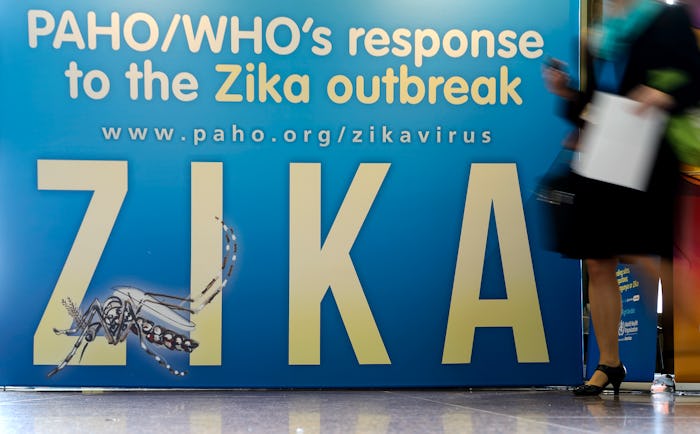Life

Zika Symptoms You Might Not Have Heard Of That Everyone Should Watch For
So at this stage of the game, I think it's safe to say most everyone has heard a thing or two about the Zika virus. Most of us have probably heard that it can be transmitted by mosquito bites. Even more probably know a few of the symptoms, which might make some of us feel as though we have a handle on this whole Zika outbreak issue that is causing so many problems around the globe. But there are some symptoms of the Zika virus you might not have heard of — and these are symptoms we should all be watching out for, especially as the weather turns warmer and mosquito season truly begins.
The most common symptoms of the Zika virus are flu-like. An infected patient might find they are running a fever or struggling with headaches. Anyone experiencing these sort of symptoms should speak to their health care professional immediately, especially women who could possibly conceive or are already pregnant. A pregnant woman can pass the virus along to her unborn child, and the virus could cause brain defects in newborns like microcephaly (a disease that inhibits proper head growth), and possibly Guillane-Barre syndrome (an illness that affects the immune system).
The Centers for Disease Control also recently announced that the likelihood of transmitting the Zika virus sexually is higher than originally thought. The male partner can pass the virus before symptoms start, while they are ongoing, and after they have ended. The CDC reports that the virus can stay alive longer in semen than in blood, but they are still unclear as to how long.
There are a few other, lesser known symptoms to watch for this summer if you're worried about the Zika virus though. The symptoms are very similar to those of dengue fever. Some of these include:
- Conjunctivitis (red eyes)
- Muscle pain
- Rash
- Joint pain
- Malaise (generally feeling achy and tired)
While these symptoms might be mild and only last from two to seven days, it is still a good idea to see your doctor to ensure you don't have the Zika virus. Scientists have yet to discover a vaccine against the virus, and are still unsure about the incubation period. Since doctors don't know how long the virus can live in a human's blood stream, the World Health Organization has recommended that any women who have visited high risk Zika-hit areas (especially the Caribbean, South America, Africa, and parts of Asia) avoid conceiving for at least eight weeks upon her return.
The best way to avoid contracting the Zika virus remains being proactive and protecting yourself against mosquito bites. With summer just around the corner, knowledge and preparation will be the key to staying healthy.